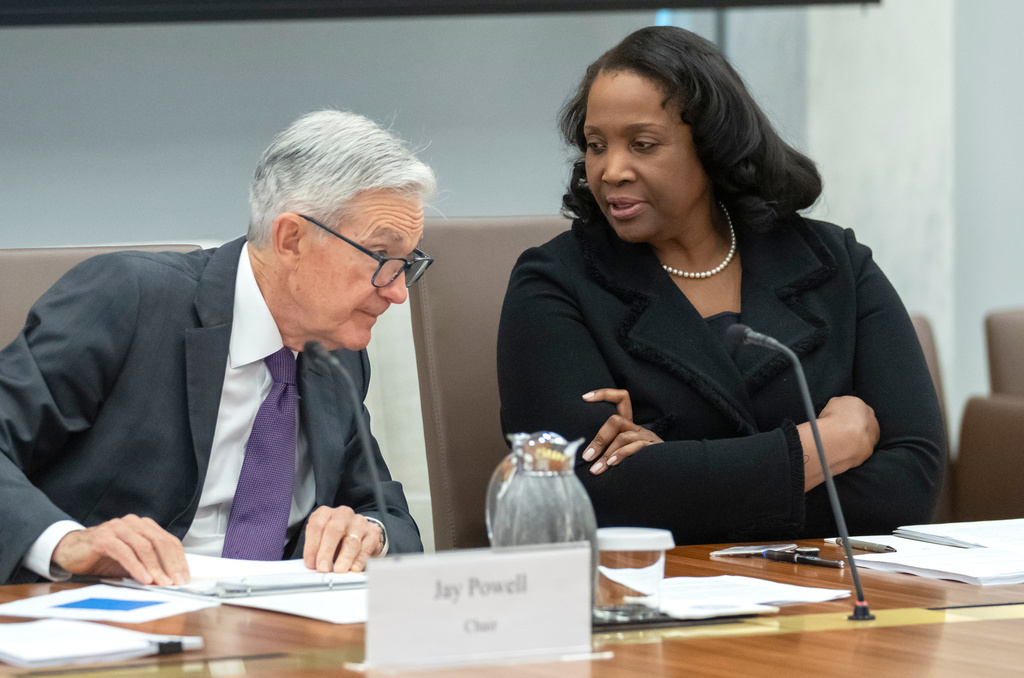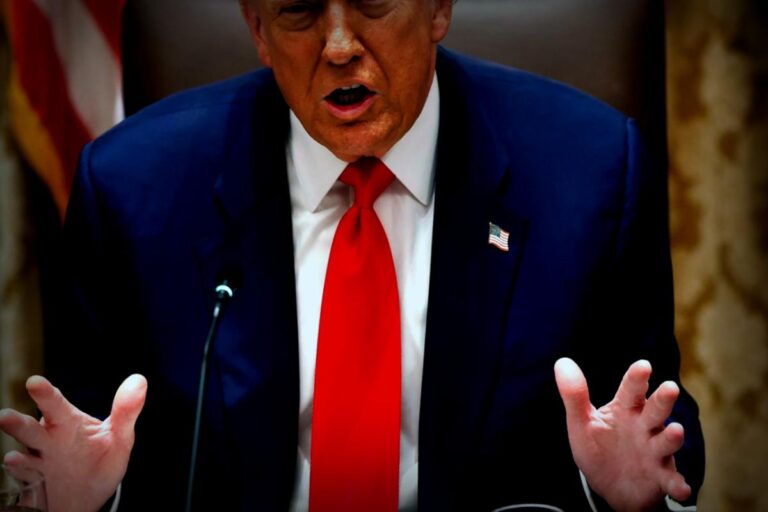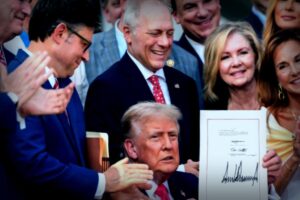In a significant turn of events, President Trump declared on Monday night his intention to fire Lisa Cook, a governor at the Federal Reserve. This unprecedented decision signals a more vigorous effort by Trump to tighten his grip on an institution that’s historically been detached from political pressures.
Announcing his decision via a letter on his Truth Social platform, Trump cited accusations against Cook of alleged mortgage fraud as the reason for her immediate dismissal. These accusations were put forth by Bill Pulte, a presidential appointee involved with major mortgage companies like Fannie Mae and Freddie Mac.
Pulte contended that in 2021, Cook had reported two primary residences, one in Ann Arbor, Michigan, and another in Atlanta, to secure favorable mortgage terms. Rates can be significantly higher for second homes or properties purchased specifically to let.
This move could launch a legal challenge that might eventually reach the Supreme Court, potentially destabilizing financial markets and driving up interest rates—a scenario that already caused a slight dip in stock futures and the value of the dollar against other currencies late Monday.
The independence of the Federal Reserve is crucial for its role in tackling inflation, as it allows for tough decisions like interest rate hikes. Should bond investors begin to doubt the Fed’s capability to manage inflation, they might demand increased rates for their bonds, resulting in rising borrowing costs for everything from mortgages to business loans.

Cook was picked for the Fed’s governing board in 2022 by then-President Joe Biden and made history as the first Black woman to hold that position. With a prestigious educational background, including degrees from Oxford and Spelman College, she has also held teaching positions at Michigan State University and Harvard’s Kennedy School of Government.
Despite facing opposition from most Senate Republicans, she was confirmed with a tie-breaking vote from then-Vice President Kamala Harris.
Legal Concerns Surrounding ‘For Cause’ Dismissals
The law permits a president to remove a Fed governor only “for cause,” which generally suggests some level of misconduct. Differences in policy direction alone are not grounds for dismissal.
Legal experts have highlighted that a legitimate process would typically involve letting Cook contest the charges and present her side—a procedure that seems lacking in this case. Lev Menand, a law professor and author, pointed out that dismissals for cause generally relate to official misconduct while in office rather than prior personal actions.
“This isn’t about someone who’s been convicted of a crime or failed to carry out their official duties,” Menand remarked.
Fed governors play a vital role in determining interest rates and managing financial regulations. While they are appointed by the president, their positions are built to remain insulated from direct political influences through staggered 14-year terms.
Breaking New Ground
While past presidents have sometimes pressured Fed chairs, no president has ever attempted to dismiss a Fed governor outright. Both Democratic and Republican presidents have generally refrained from undermining the Federal Reserve’s independence, unlike Richard Nixon and Lyndon Johnson, who applied pressure mainly behind closed doors. Their tactics have been linked to the inflation crises of the late 1960s and ’70s.
Former President Truman had exerted pressure for a voluntary resignation from Thomas McCabe in the early ’50s, but this was done through informal channels.
Trump’s latest action comes hot on the heels of Cook’s public rejection of his earlier calls for her resignation, where she stated: “I will not be bullied into stepping down because of vague tweets.”
A recent Supreme Court decision suggested the chair of the Fed is predominantly shielded from presidential dismissal; however, the same may not hold true for governors.
Menand noted the difficulty in predicting outcomes, given the current unwind of the court’s stance on such matters.
Trump’s method of invoking the “for cause” clause appears as a means to further his agenda to appoint individuals the Fed who share his stance on lowering interest rates, noted Sarah Binder from the Brookings Institution.
The Battle Over Rates
Trump has consistently articulated a desire to have the Fed filled with officials who cheer lower borrowing costs. Recently, he appointed Stephen Miran as a replacement for Adriana Kugler, who left her position well before her term ended.
During his first term, Trump successfully appointed two governors, Christopher Waller and Michelle Bowman. By following through on displacing Cook, Trump could sway the balance to a 4-3 majority of his appointees.
In a letter to Cook, Trump underscored the necessity of public confidence in those directing Federal Reserve policies, pointing out that her supposedly deceptive behavior undermined such assurance.
Stress arose regarding whether Cook could maintain her seat amid legal proceedings against her. She could be left to navigate her fight in court independently, rather than through the Federal Reserve as her defending entity.
As various reactions flooded in following Trump’s announcement, Sen. Elizabeth Warren vehemently opposed the action, branding it illegal and describing it as an authoritarian instance of scapegoating.
Trump has belittled current Fed chair Jerome Powell repeatedly for not enacting immediate cuts on interest rates and has even gone so far as to vaguely hint at firing him.
If Cook’s dismissal occurs, Trump would have a seamless opportunity to select someone stronger aligned with his goals of rate reductions. Powell has hinted that rate cuts may be looming soon—despite ongoing inflation concerns. Trump will also have the chance to appoint a new chair once Powell’s term concludes in May 2026, but with 12 committee members voting on interest rates, simply changing the chair may not guarantee policy deviations from Trump’s preferences.
__
Contributions by AP writer Fatima Hussein have been included.




















